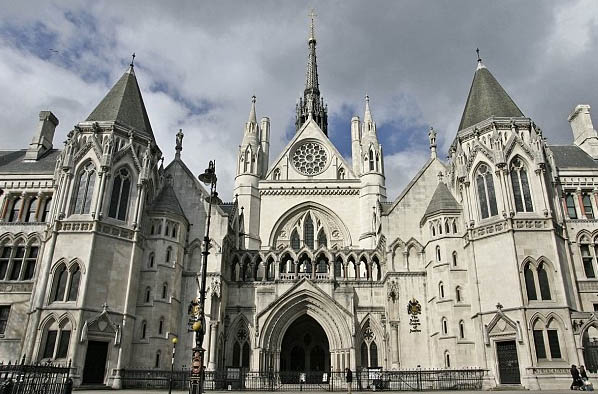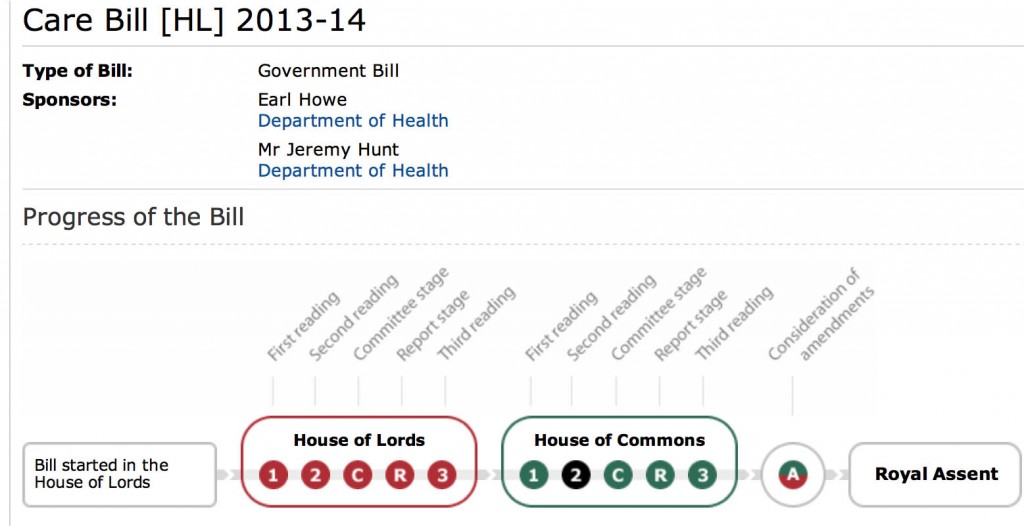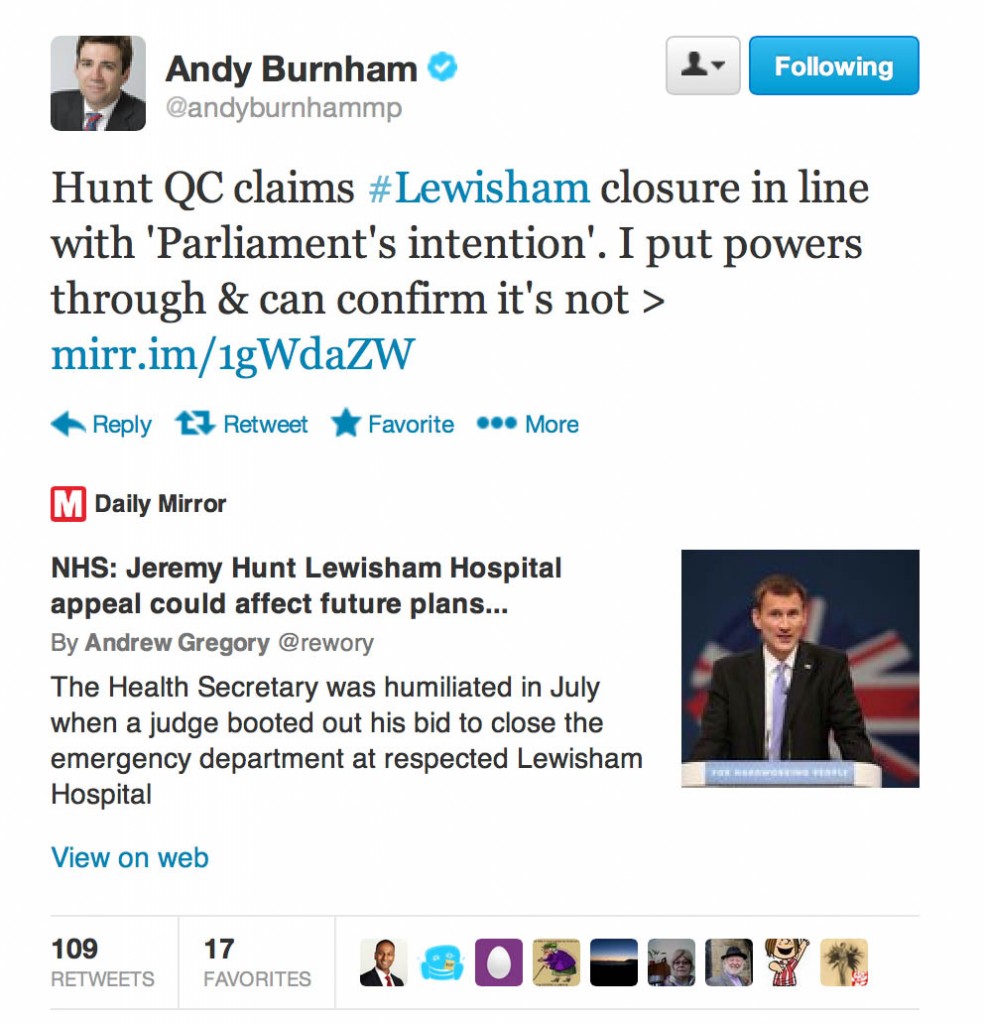The judgment from the appeal court (Court of Appeal), the second highest court in England and Wales, provides useful clarification on the reasoning behind why Jeremy Hunt lost.
This judgment has been published thus by LJ Sullivan, with their other Lordships in agreement, including significantly the current Master of the Rolls.
Jos Bell explains elegantly the situation regarding Lewisham on the ‘Our NHS’ website as follows:
In the Lewisham case, the judge, Justice Silber, had ruled that Hunt and his administrator Matthew Kershaw had no right to use the ‘special administration process’ in a neighbouring NHS trust – South London – to meddle in the affairs of unrelated Lewisham Hospital – and to ignore the view of local GPs.
In part, this sudden pop-up Amendment (to Care Bill Clause 109) is the action of a government shoring themselves up for a judicial defeat. Lewisham campaigners suspect that the government senses their Appeal, due to be heard just a week after the Lords debate has been tabled, is on rocky ground. Although the Amendment will not apply retrospectively to the Lewisham case, if it passes it would enable them to rain blows on Lewisham that they have been unable to inflict by other means, all over again.
It is reported that the health minister Frederick Howe had explained in a letter to peers that the amendment would “put beyond doubt” that the trust special administrator has power to make recommendations and that the health secretary (or Monitor in the case of foundation trusts) has the power to take decisions that affect providers other than the one to which the administrator was appointed.
The Court of Appeal decision fundamentally hinges on a very strict point of law – that is, what parliament had intended, particularly in relation to how Chapter 5A must be construed in the context of the 2006 Act as a whole [as legislated].
Due to the separation of powers in English law, it is not for judges to make the law generally.
Judges are there to interpret the law.
The Court of Appeal appears to be acknowledging that the current government is taking the TSA model to attempt widespread NHS reconfiguration. The evidence for this strikingly emerged in para. 19 of the Judgment:
- The fact that in some cases a TSA might think it necessary to go further and make recommendations for action in relation to other Trusts, as happened in the present case, might be a justification for conferring wider powers on TSAs and the Secretary of State, but whether or not that would be desirable is a matter for Parliament, not this Court. We were told that a new clause has been inserted into the Care Bill, which is presently before Parliament. The new clause provides that references in Chapter 5A to taking action in relation to an NHS trust include a reference to taking action “in relation to another NHS Trust”. This is precisely the kind of provision that one would have expected to see in Chapter 5A if Parliament had intended it to have the meaning attributed to it by the Appellants.
Now it is crucial for Parliament to decide how it is going to progress on this issue.
It is also vital to acknowledge that the Care Bill 2013 has not obtained Royal Assent yet.
It’s not law yet.
But it is getting closer and closer.
As confirmed by Jos Bell, the next steps are going to be crucial.
The law has to be “clear, unambigious and devoid of relevant qualification“.
Judges in deciding upon controversial cases often have to go behind ‘what parliament had intended’.
But what parliament had intended was clear.
Lawyers are indeed allowed to look to external statutory aids to help them interpret the law. This can conceivably even in come in the form of Twitter. Andy Burnham MP, the former Secretary of State for Health, announced on Twitter on 28 October 2013:
Jeremy Hunt’s cardinal mistake for both the High Court and the Court of Appeal was try to act outside of his powers. What the current executive is attempting here is an aggressive use of the ‘special administration process’ to shut down NHS entities, contrary to p.47 of the 2010 Conservative Party Manifesto.
That the Conservative Party had broken their Manifesto pledge was articulately demonstrated in #pmqs by Heidi Alexander MP this week (as reported in Hansard):
The Coalition is propelling us at high speed into the chaotic “dog-eats-dog” ‘rule of the market’. It is this out-of-control market which appears fundamentally, and rather paradoxically, anarchic.
For Labour currently, it is critical that abuse of powers through the TSA ‘route’ is stopped.
It is widely anticipated that Liz Kendall MP and Jamie Reed MP will be playing a critical rôle in Labour’s response to the Care Bill including its amendments. One cannot wish but to give them full support, as this parliamentary fight is not over by any means.
In a significant step, Jeremy Taylor, Chief Executive of “National Voices” has asked for the Department of Health to withdraw this amendment to the Care Bill. He has copied in fact his letter to Norman Lamb MP and Una O’Brien.
Jeremy’s letter could not be clearer:
We recognise the special and difficult circumstances surrounding trust failure. We do not accept that these conditions justify cutting out patient and public involvement. If anything it is the reverse. Without the input of the citizens affected by the changes, decisions taken in haste are more likely to be wrong and more likely to erode public confidence. The circumstances call for a different model of engagement, not an absence of engagement. National Voices, together with our members, partners and friends, offers to work with the Department and other key system players to help co-produce such a model.
A clear solution for what (now) ‘parliament intends’, especially given that no party won the general election of 2010, is not in sight yet.







Pingback: The “official top 40″ of my most viewed articles on the SHA website this year()